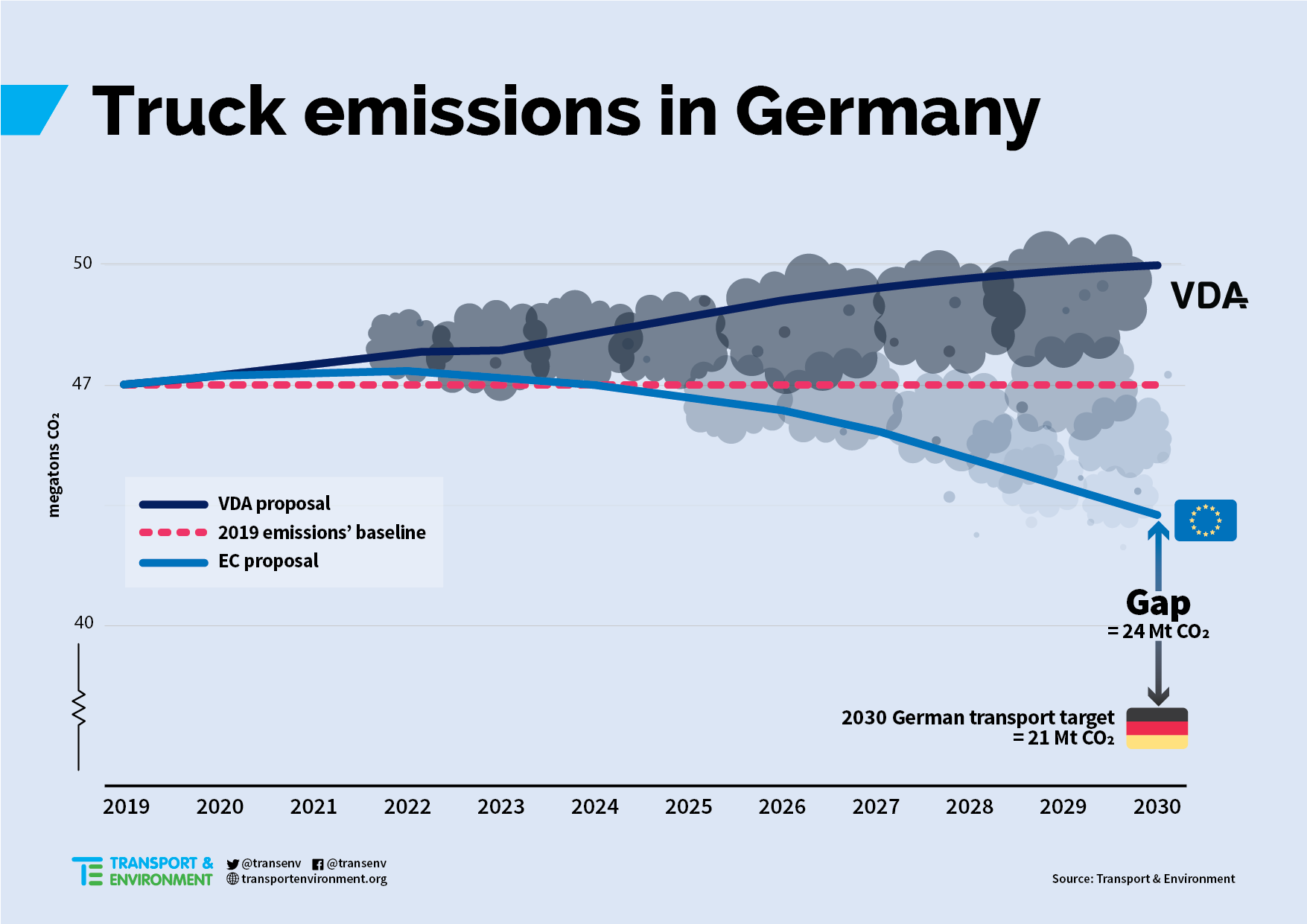
Interested in this kind of news?
Receive them directly in your inbox. Delivered once a week.
Truckmakers want zero- and low-emission trucks – including electric, hybrid and efficient gas-powered lorries – to count up to five times towards the emission reduction goals. It’s an accounting trick that would enable them to sell only a small number of electric trucks and still meet – on paper – the already low 2025 CO2 target they propose (-7%). Meanwhile EU truck CO2 emissions would be higher in 2025 compared to 2019, T&E has calculated.
It means that if the electric truck sales of Daimler, for instance, were just 2.5% of its total sales in 2025 (around 1,800 trucks), the fuel efficiency of their diesel trucks in 2025 could be 2.5% worse than their 2019 models.
T&E’s cleaner truck officer, Stef Cornelis, said: ‘Truckmakers claim they are leading on fuel efficiency and are now announcing an electric trucks splurge. The reality is they are lobbying Berlin and Brussels to achieve the exact opposite. If ACEA and the VDA get their way truckmakers will sell minimal numbers of electric trucks and fuel efficiency would actually get worse.’
Last May, the European Commission proposed to reduce fuel consumption of new trucks by 15% in 2025 and at least 30% in 2030, compared to 2019 models. Big businesses like IKEA, Unilever, Carrefour and Nestlé, trucking companies, as well as a group of EU countries, including truck-producing nations, are asking for the cost effective fuel savings to be captured, which means setting a 2025 target of 20%. However, ACEA and the VDA want just a 7% cut in 2025 and 16% in 2030.
Rising truck emissions will also jeopardise Europe’s and Germany’s climate goals, T&E’s analysis also shows. The truck lobby proposal would mean that emissions from heavy-duty vehicles would continue to increase annually, instead of decreasing, adding an extra two million tonnes of CO2 in 2025 and three million tonnes in 2030 in Germany alone. The same will happen for truck emissions in Europe, going from 200 Mt CO2 to 217 Mt CO2 in 2025 and 230 Mt CO2 in 2030.
Trucks make up less than 5% of the vehicles on the road but account for 22% of road transport emissions. While the US, Japan, China and Canada have CO2 limits in place, the fuel efficiency of trucks in Europe has advanced little over the past 20 years – a period when EU truckmakers engaged in a price fixing cartel.
However, electric trucks will be cost competitive with diesel trucks – even on total cost of ownership – before 2030, if battery costs continue to fall as anticipated, a new study has found. In 2030, a battery electric truck will be 31% cheaper than a conventional truck, while a battery electric truck running on an e-highway will be 43% cheaper, according to Trucking into a greener future. The report was co-authored by truckmakers, including Volvo and Tesla, supplier Siemens, logistics companies, and T&E.
T&E said the infrastructure costs of rolling out electric trucks can be met. ‘The infrastructure costs over the next 30 years are no higher than what the EU spends on transport infrastructure in one single year,’ said transport and emobility analyst Lucien Mathieu.


